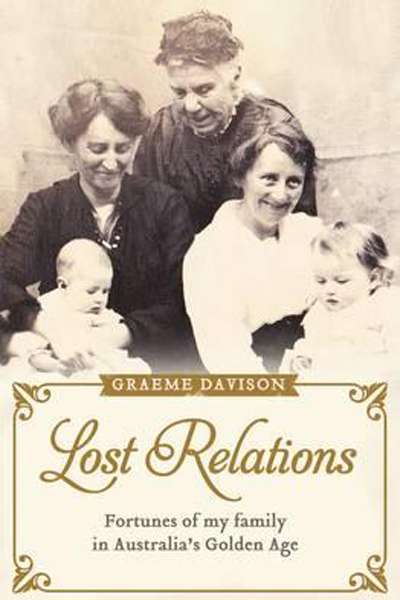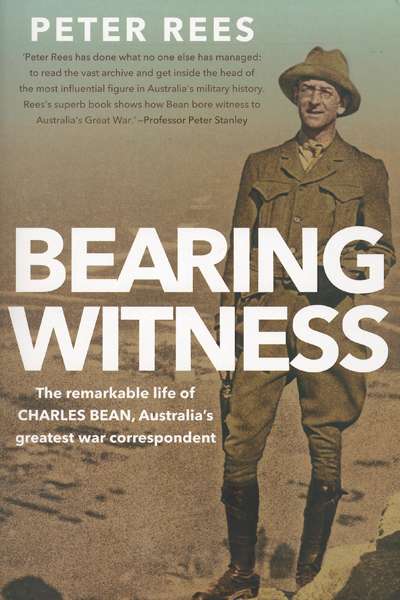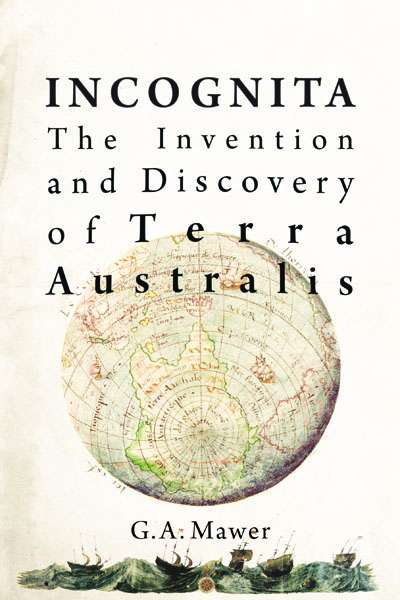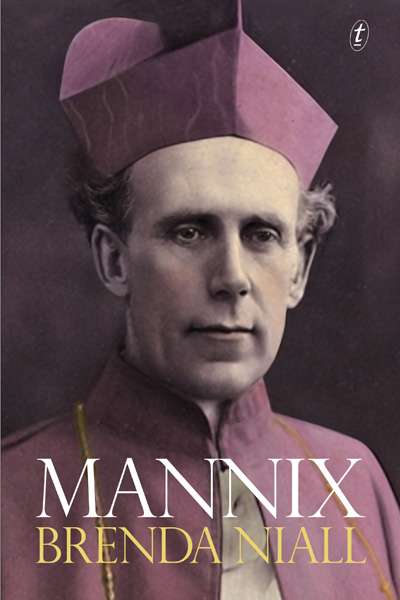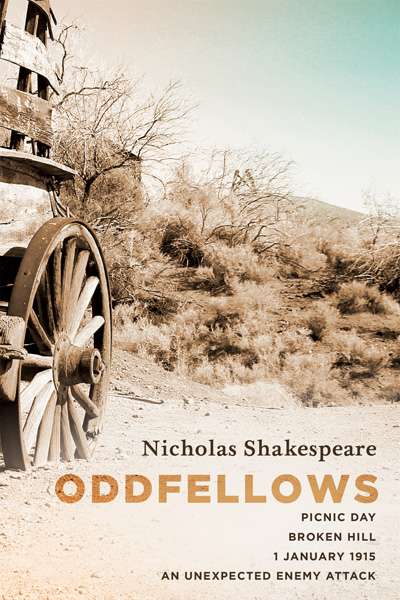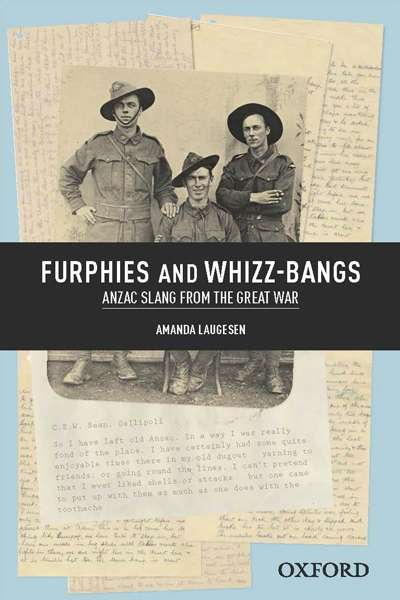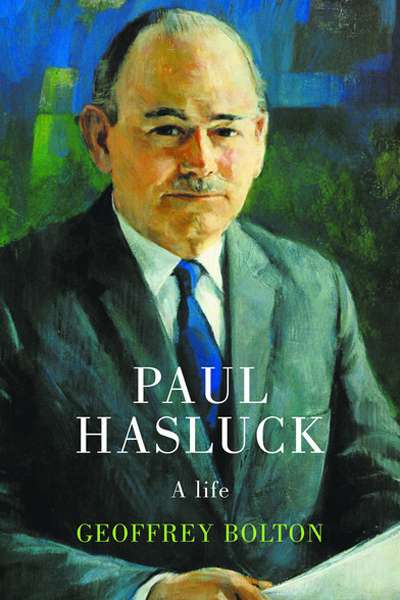Australian History
In his essay ‘The Fiction Fields of Australia’ (1856), Frederick Sinnett conducts an inquiry ‘into the feasibility of writing Australian novels; or, to use other words, into the suitability of Australian life and scenery for the novel writers’ purpose and, secondly, into the right manner of their treatment’.
Lost Relations: Fortunes of My Family in Australia's Golden Age by Graeme Davison
Clear-eyed, unsentimental, but compassionate, with a nicely honed flair for story-telling, Graeme Davison is one of Australia’s master historians. Now Emeritus Professor of History at Monash University, his early training was in R.M. Crawford’s so-called Melbourne History School, where it was simply assumed that books would be written. Crawford’s department at ...
Bearing Witness: The Remarkable Life of Charles Bean, Australia's Greatest War Correspondent by Peter Rees
Charles Bean is now seen as one of the classiest journalists and historians Australia has produced. Like many talented historians, he had no prior training in his craft, except as a war correspondent during World War I, when he wrote in the face of daily and nightly dangers such as most war journalists no longer have to confront.
I have the strong impression ...
Tony Birch on 'The Chant of Jimmie Blacksmith' by Thomas Keneally for Reading Australia
Thomas Keneally’s novel The Chant of Jimmie Blacksmith (1972) is based in part on historical events, particularly the crimes committed by Jimmy Governor, an Aboriginal man from New South Wales. In 1900, Governor was a key figure involved in the killing of nine Europeans, including five women and children. The killings followed Governor’s marriage t ...
If ever there were to be an exception to Winston Churchill’s military aphorism, ‘History is written by the victors’, the Anzac story would make a promising candidate. One doubts that those on the ground at Gallipoli would consider themselves victors. Yet here we are, one hundred years on, celebrating the Anzac tradition with mo ...
Incognita: The Invention and Discovery of Terra Australis by G.A. Mawer
As the author explains in his preface, Incognita had its genesis in events to commemorate the four-hundredth anniversary of the voyages of Janszoon and Torres to the Cape York Peninsula in 1606, with the explorations of these Dutch mariners representing the first European sighting of Australia. This book has been several years in the making, and it offers an ...
With her long-awaited life of Archbishop Daniel Mannix, Brenda Niall, one of Australia’s leading biographers, has conquered a subject that for decades she regarded as compelling yet ‘intractable’. ‘As a presence (I wouldn’t claim such a remote and magisterial being as a neighbour) Daniel Mannix was part of my childhood,’ Niall recalls. She grew up in the ...
Two aggrieved Islamic men follow a foreign cause and wage jihad on their fellow Australians. Shouting Allahu akbar, they stage an ambush, raise a home-made flag and open fire on hundreds of men, women and children. They escape and die in a final shoot-out. They leave four dead and seven wounded.
It could be ripped from today’s headlines – except it happened a hundred years ago. On New Year’s Day in 1915, Gul Mehmet and Molla Abdullah, denizens of Ghantown, the despised Afghan settlement on the outskirts of Broken Hill, took up arms against the town’s citizens as they rode the train to the annual Oddfellows picnic. They did so in the name of the Turkish Sultan, who was calling for resistance to the Anzac invaders in their home territory.
... (read more)Furphies and Whizz-Bangs: ANZAC slang from the Great War by Amanda Laugesen
The Great War produced its own idiom and slang. Many of the new words and phrases created during the long conflict, such as ‘tank’ and ‘barrage’, became part of standard English, although often with a different nuance of meaning.
The recording of Australian soldier slang was seen as important at the end of the war. It was recognised as being integral to the unique character of the Australian soldier and linked to the official war historian C.E.W. Bean’s characterisation of the Australian soldier as the bronzed bushman and an outstanding fighter with a disdain for authority. In 1919, W.H. Downing published Digger Dialects; he described the slang he had collected as ‘a by-product of the collective imagination of the A.I.F.’. In the early 1920s, A.G. Pretty, chief librarian at the Australian War Museum, later the Australian War Memorial, compiled a ‘Glossary of Slang and Peculiar Terms in Use in the A.I.F.’. Amanda Laugesen (now the director of the Australian National Dictionary Centre at the Australian National University) has previously edited an online version of Pretty’s ‘Glossary’ and in 2005 published Diggerspeak: The Language of Australians at War.
... (read more)Geoffrey Bolton has written a fine biography of one of Australia’s eminent sons, one not well recognised or widely remembered. Paul Meernaa Caedwalla Hasluck was born in Western Australia in 1905 and rose to become an accomplished journalist, a historian, public servant and diplomat, a minister of Parliament in the Menzies era, contender and possibly logical successor for prime minister, and governor-general. Each facet of Has-luck’s governmental career displayed a selfless commitment to duty, to the notion of governmental responsibility, as well as considerable achievements in the advancement of both the people of Papua and New Guinea, and policies in the Northern Territory relating to Aboriginal welfare.
... (read more)

